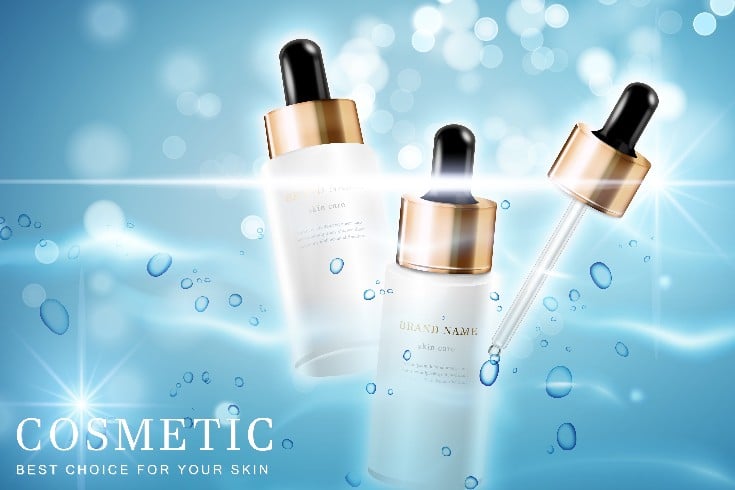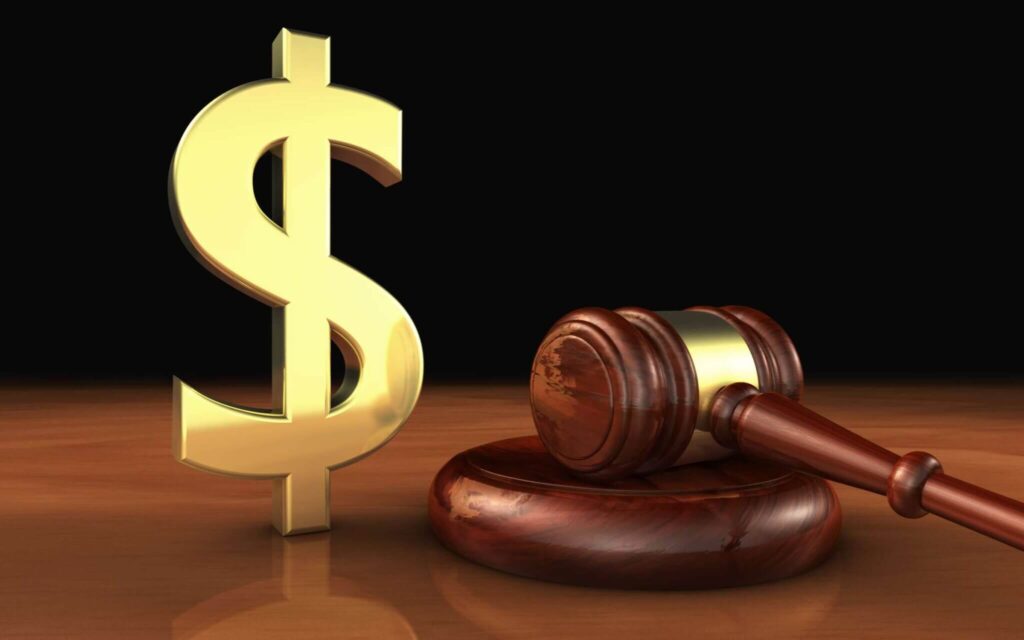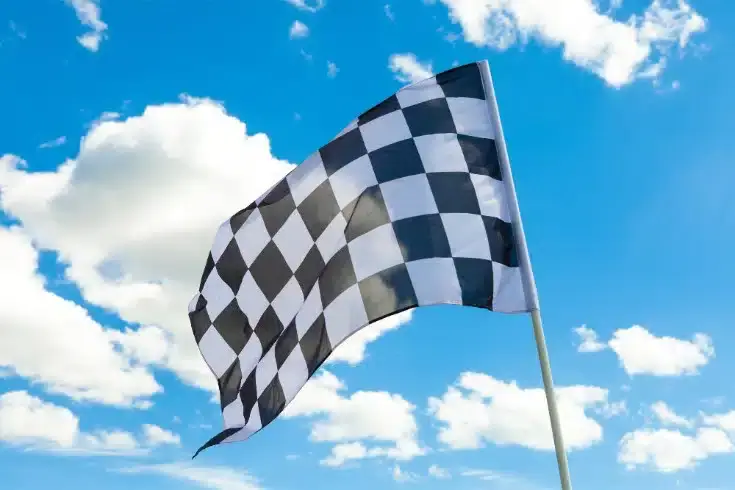Regulation of Cosmetic Advertising Expressions on LPs and Other E-commerce Sites

When advertising cosmetics, in order to encourage more customers to purchase a variety of products, it is necessary to widely disseminate the positive aspects of the product information, such as the image, ingredients, and efficacy of the cosmetics. On the landing page (LP) of an EC site, you would want to include descriptions that make people want to buy the product.
However, product advertisements using media such as the internet and flyers are mostly targeted at a large number of people without specialized knowledge. Therefore, for products like cosmetics that are applied directly to the body, you cannot write whatever you want.
Therefore, there are certain rules based on law for advertisements. These rules are stipulated by the law officially known as the “Japanese Pharmaceutical and Medical Device Act (Act No. 145 of 1960 (Showa 35))”, commonly known as the PMD Act, and the former Pharmaceutical Affairs Law before its amendment.
Regulations on Advertising under the Japanese Pharmaceuticals and Medical Devices Act
The “specific rules” stipulated by the Japanese Pharmaceuticals and Medical Devices Act (PMD Act) are defined as follows:
(Exaggerated Advertising, etc.)
Article 66 of the Japanese Pharmaceuticals and Medical Devices ActNo person shall advertise, describe, or disseminate false or exaggerated information about the name, manufacturing method, efficacy, effect, or performance of pharmaceuticals, quasi-drugs, cosmetics, medical devices, or regenerative medicine products, whether explicitly or implicitly.
2. Advertising, describing, or disseminating information about the efficacy, effect, or performance of pharmaceuticals, quasi-drugs, cosmetics, medical devices, or regenerative medicine products that could be misunderstood as being guaranteed by a doctor or other person is considered to fall under the preceding paragraph.
3. No person shall imply abortion or use obscene documents or drawings in relation to pharmaceuticals, quasi-drugs, cosmetics, medical devices, or regenerative medicine products.
The so-called PMD Act (formerly the Pharmaceutical Affairs Law) prohibits the advertising of “false or exaggerated information” as described above. As will be discussed later, landing pages (LPs) of e-commerce sites, for example, are considered “advertising” as long as they have a clear purpose of leading to product sales.
However, the term “false or exaggerated information” is very abstract, and it is not clear what is safe and what is not.
In regard to this specific standard, the Ministry of Health, Labour and Welfare (MHLW) has prepared a “Notification on the Standards for Proper Advertising of Pharmaceuticals, etc.” (Notification by the Director of the Pharmaceutical and Food Sanitation Bureau of the MHLW dated September 29, 2017 (Heisei 29)). In practice, this notification functions as the “rule”.
This notification stipulates somewhat specific “rules”. For example, in the case of “cosmetics” (details will be discussed later) that should not claim to cure diseases, expressions such as “protects nails”, “keeps nails healthy”, and “moisturizes nails” are acceptable, but expressions such as “repairs cracked nails” are not. Compared to the provisions of the PMD Act mentioned above, this can be said to be quite specific.
The MHLW judges the legality of specific advertisements based on this notification, and primarily through prefectures, it monitors and provides guidance to those who have conducted advertising that violates the regulations, such as calling for reports by email on websites about violations of the content, inappropriate words or expressions, etc.
Positioning of Cosmetics as a Product
In Japan, cosmetics are regulated under the Japanese Pharmaceutical Affairs Law (薬機法) along with pharmaceuticals and quasi-drugs, with the aim of improving public health and hygiene.
Article 2, Paragraph 3 of the Japanese Pharmaceutical Affairs Law
In this law, “cosmetics” refers to products intended for use in cleaning, beautifying, enhancing attractiveness, changing appearance, or maintaining the health of the skin or hair by applying, spraying, or similar methods to the body. These products have a mild effect on the human body. However, this does not include products that are also intended for use in applications specified in Item 2 or 3 of Paragraph 1, or quasi-drugs.
According to this provision, “cosmetics” are not only for women’s faces but are products developed for the purpose of beauty that gradually progresses, with the original purpose of the product not immediately apparent. They are intended to beautify and enhance the attractiveness of the human body, change its appearance, keep it clean, and maintain the health of the skin and hair by rubbing it into the body, spraying it, and so on.
On the other hand, we will not touch on this time, but it does not include things like pharmaceuticals and quasi-drugs that are intended to be used for the diagnosis, treatment, or prevention of human or animal diseases.
Based on these definitions, specifically, shampoos, conditioners, etc. are included in cosmetics. For other products, please refer to the Tokyo Metropolitan Health and Safety Research Center HP Effects of Cosmetics as written.
And, when it comes to advertising cosmetics, a distinctive feature compared to pharmaceuticals and the like is that you cannot mention “active ingredients”. Active ingredients refer to the components that represent the effect intended for pharmaceuticals and the like. In the case of cosmetics, the entire included ingredients contribute to the sensation and effect of use, so the term “active ingredients” cannot be used.
Regulation of Advertising Expressions for “Cosmetics”
(Exaggerated Advertising, etc.)
Article 66 of the Japanese Pharmaceutical and Medical Device Act (PMD Act): No person shall advertise, describe, or disseminate false or exaggerated articles regarding the name, manufacturing method, efficacy, effect, or performance of pharmaceuticals, quasi-drugs, cosmetics, medical devices, or regenerative medicine products, whether explicitly or implicitly.
2. Articles that may be misunderstood as being guaranteed by a doctor or other person regarding the efficacy, effect, or performance of pharmaceuticals, quasi-drugs, cosmetics, medical devices, or regenerative medicine products shall be deemed to fall under the preceding paragraph.
3. No person shall imply abortion in relation to pharmaceuticals, quasi-drugs, cosmetics, medical devices, or regenerative medicine products, or use obscene documents or drawings.
This article prohibits false or exaggerated advertising related to pharmaceuticals and other products.
The Definition of “Advertising” is Broad
“Advertising” is defined as:
- Having a clear intention to attract customers (to stimulate their purchasing desire)
- The product name of a specific pharmaceutical product, etc. is clearly stated
- It is in a state that the general public can recognize
It is stipulated in the notification by the Director of the Surveillance and Guidance Division of the Pharmaceutical Safety Bureau of the Ministry of Health and Welfare on September 29, 1998 (Heisei 10) (Pharmaceutical Monitor No. 148) that this is the case when all the requirements from 1 to 3 are met.
Therefore, if you take measures to inform the general public under the clear purpose of wanting to sell by making a certain product name known, it can be said that you have performed the act of advertising.
For example, on the Internet, in LPs, banners, affiliates, email newsletters, emails, etc., not only in individual cases, but also when adding display of the link destination, if the specific product name is clearly stated and the customer’s purchasing desire is clearly intended to be recognized by the general public, including the display of the link destination, it corresponds to advertising. The same applies to personal blogs.
Who is the Subject of Advertising Regulation?
The “any person” who is the subject of Article 66, Paragraphs 1 and 3 of the Japanese Pharmaceutical Affairs Law includes manufacturers, sellers, and all others. Also, if these people simply request and advertise through media such as TV, newspapers, magazines, and the Internet, these media will be in violation of these provisions.
For example, not only a cosmetics brand company that makes and sells cosmetics, but also a newspaper that has published exaggerated advertisements at the request of that company will be in violation of these provisions.
And, among the “other persons” who are the subject of Paragraph 2 of Article 66 of the Japanese Pharmaceutical Affairs Law, barbers and beauticians are also included for cosmetics.
In other words, among the advertisements for pharmaceuticals, etc., only for cosmetics, there is a personalityistic that the prohibition of guarantees for advertisements made by barbers and beauticians is stipulated.
Notification 10: Recommendation by Medical Professionals
Medical professionals, barbers, beauticians, hospitals, clinics, pharmacies, and other organizations, including public offices, schools, and academic societies, that have a significant impact on public recognition of the efficacy and effects of pharmaceuticals, etc., must not advertise that they designate, recognize, recommend, instruct, or specialize in them.
However, this does not apply in special cases where it is necessary to advertise the fact that a public office or something equivalent to it is designating, etc., for the maintenance and promotion of public health.
What Kind of Expression is “Exaggerated”?
The judgment of whether it is false or exaggerated is made based on the notification as a standard for judgment and guidance. This standard was created under the purpose of “making the content of advertisements not false or exaggerated, eliminating inappropriate advertisements, and ensuring that general consumers, etc., do not have a mistaken understanding of pharmaceuticals, etc., and aiming for the proper advertising.”
On the Ministry of Health, Labour and Welfare’s website “About Advertising Regulations for Pharmaceuticals, etc.”, it is written in the [Explanation] link that “specific judgments are made for each individual case.” This means that the same wording does not uniformly “not violate” because various effects may appear due to “changes in the environment surrounding the advertising of pharmaceuticals, etc.” as stated in the notification, for example, the nature of the media, ingenuity, etc.
What Kind of Acts are Subject to Regulation?
As for “not to be described or disseminated”, it is understood that all methods for widely informing the general public, not limited to description or dissemination, are subject to prohibition.
For example, the method of showing it on the LP of an EC site clearly falls under “description”, and even cases where salespeople share information and explain to the general public verbally, such as in sales talk manuals, are included.
Even Beauticians are Prohibited from Guaranteeing the Effects of Cosmetic Advertisements
Article 66, Paragraph 2 of the Japanese Pharmaceutical Affairs Law prohibits advertisements that could potentially mislead people into believing that a doctor or similar professional has guaranteed the efficacy, effect, or performance of a cosmetic product.
The term “other persons” in this context includes dentists and pharmacists, as well as anyone who could significantly influence people’s perceptions of the efficacy, effect, or performance of a product. In this case, it is interpreted to include beauticians and barbers, but only in relation to cosmetics.
Thus, the inclusion of beauticians and barbers in the interpretation of guarantees for cosmetic advertisements is due to the fact that these professions, which are obtained by passing an examination on hygiene and beauty after completing a training facility designated by the Minister of Health, Labour and Welfare, are recognized for their expertise in cosmetics, which are intended to promote these fields. They are considered to significantly influence people’s perceptions of the efficacy, effect, or performance of a product.
Therefore, it is generally believed that cosmetic advertisements by beauticians and barbers are likely to be considered as “misleading guarantees” under Paragraph 2, simply by the act of advertising itself, and are therefore considered to be exaggerated advertisements and are not generally accepted.
However, the following actions would not be considered as “guaranteeing”:
- Introducing the history and origin of the product manufacturing company
- Washing hair
- Applying the product to the nape of the neck after setting, resulting in a feeling of comfort for the general public
These actions would not be considered as “guaranteeing”.
When starting a business or wanting to expand into a new field, you can rely on a lawyer with experience in building a business from scratch. They can help you find a breakthrough, even in front of seemingly insurmountable obstacles, by flexibly devising strategies from various perspectives.
Category: General Corporate





















